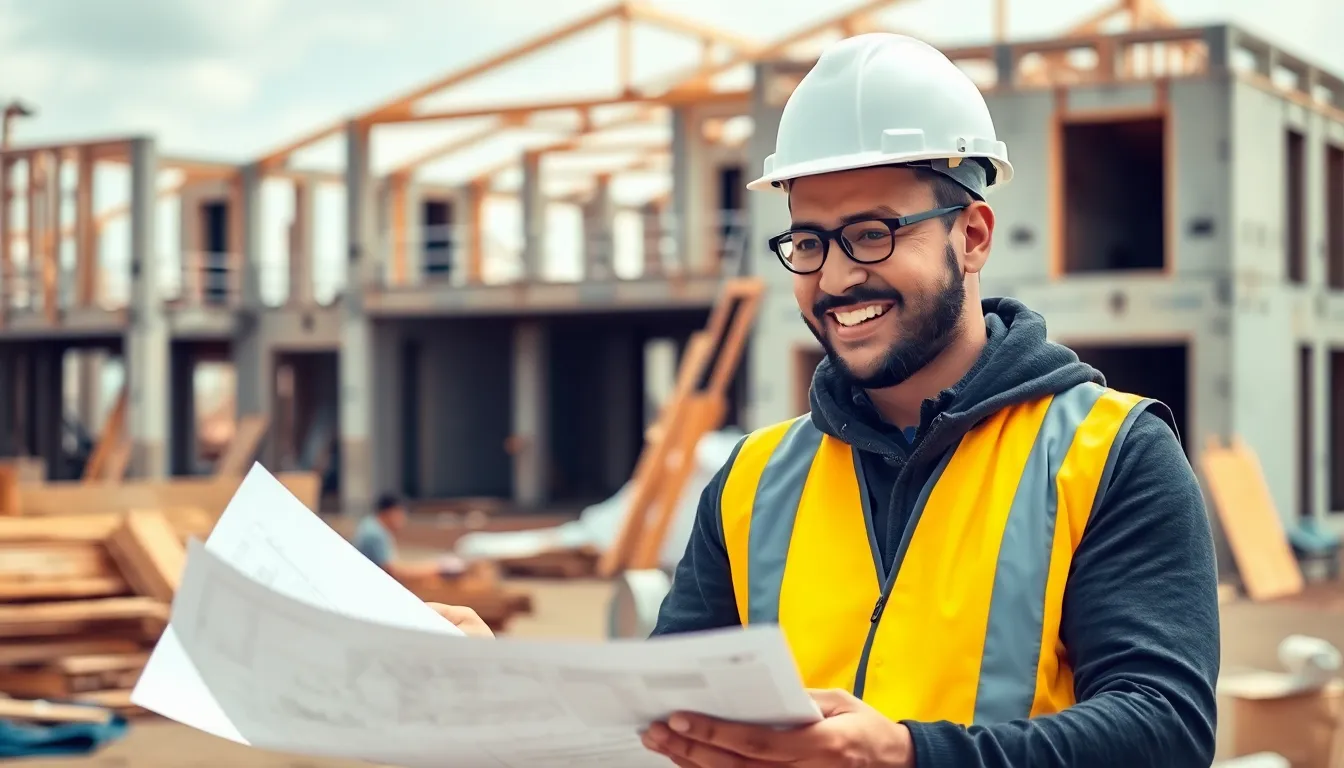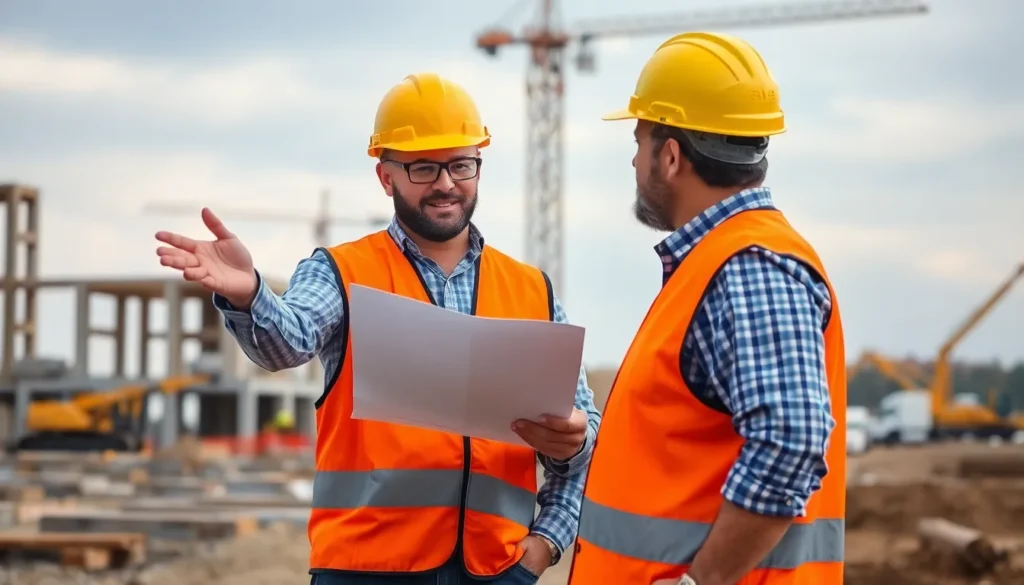When it comes to building your dream space, choosing the right construction contractor can feel like dating. You want someone reliable, skilled, and maybe even a little charming. After all, no one wants to end up with a contractor who ghosts them halfway through the project or leaves them with a house that looks like it was built by a toddler with a box of Legos.
Table of Contents
ToggleOverview of Building Construction Contractors
Building construction contractors play a vital role in turning architectural plans into physical structures. They manage various aspects of construction projects, ensuring quality and efficiency from start to finish.
Role and Importance
Construction contractors oversee project timelines, budgets, and workforce management. They coordinate subcontractors, suppliers, and regulatory compliance. Effectively handling these responsibilities minimizes delays and helps avoid costly mistakes. A skilled contractor ensures that building codes and safety standards are met, protecting clients from potential legal and financial issues. Ultimately, a reliable contractor enhances project success and client satisfaction.
Types of Services Offered
Contractors offer a range of services tailored to various construction needs. General contracting encompasses project management, scheduling, and coordination. Specialized services include electrical, plumbing, and roofing projects. Renovations and remodeling services provide homeowners with updates to existing structures. Additionally, contractors often assist with pre-construction planning, including permitting and feasibility studies. Each service contributes to a smoother construction process and meets specific client requirements.
Key Qualities of a Reliable Contractor

Selecting a reliable contractor involves assessing specific qualities that ensure a successful construction project.
Experience and Expertise
Years in the industry significantly affect a contractor’s ability to manage complex projects. Proven experience often correlates with a deeper understanding of construction processes and challenges. Contractors with diverse expertise handle various tasks effectively, from project management to supervised installations. Skilled professionals adapt to changing circumstances, ensuring timely completion of projects. Reviewing past projects offers insight into their capabilities, allowing clients to gauge style and efficiency.
Licensing and Insurance
Valid licenses demonstrate a contractor’s compliance with local regulations and standards. Verified licensing indicates that they meet the necessary qualifications in their field. Insurance coverage protects against potential liabilities associated with construction work. Contractors with appropriate coverage provide peace of mind, ensuring that accidents or damages are adequately managed. Confirming both licensing and insurance before hiring minimizes risk and enhances overall project security.
Selecting the Right Building Construction Contractor
Choosing a reliable building construction contractor demands careful consideration and thorough evaluation. Assessing skills and compatibility upfront ensures a successful project.
Research and Recommendations
Start by seeking recommendations from friends, family, or colleagues who have had positive experiences with contractors. Utilize online reviews and rating platforms to gauge contractor performance. Browse local construction forums or social media groups for insights into potential candidates. Analyzing portfolios helps identify contractors with experience relevant to specific project needs. When reaching out to previous clients, inquire about their satisfaction and whether the project completed successfully.
Interviewing Potential Candidates
Interviews play a crucial role in finding the right contractor. Schedule meetings with at least three candidates to compare expertise and communication styles. Prepare a list of questions to assess qualifications, project management strategies, and timelines. Discuss potential challenges specific to the project and gauge how they propose to handle them. Observing their responses provides insight into problem-solving capabilities and adaptability. Trust your instincts; a contractor who communicates clearly often fosters a smoother collaboration throughout the project.
Common Challenges Faced by Contractors
Contractors face various challenges that can impact project success. Understanding these hurdles helps in proactive planning.
Project Delays
Project delays occur for numerous reasons. Weather conditions can unexpectedly halt progress, especially in regions prone to severe weather. Material shortages contribute significantly to these delays. When supply chain disruptions arise, projects stall because essential items cannot be sourced. Additionally, permit issues can lead to waiting periods that prolong timelines. Workers’ availability affects progress as well, with labor shortages causing scheduling conflicts. Regular communication with all stakeholders can mitigate some of these delays, ensuring timely updates and adjustments to plans.
Budget Overruns
Budget overruns represent a common issue in construction projects. Unexpected costs often arise from unanticipated site conditions, requiring additional funds to address problems. Clients sometimes make changes mid-project, impacting the original budget and timeline. Accurate estimations at the project’s outset are crucial but can be challenging, considering fluctuating material prices. Compliance with evolving regulations can add further financial pressure, forcing contractors to adjust their budgets unexpectedly. Monitoring expenditures closely throughout the project ensures adherence to the financial plan and helps prevent significant overruns.
Choosing the right construction contractor is crucial for a successful building project. A reliable contractor not only manages timelines and budgets but also ensures quality and compliance with regulations. By taking the time to evaluate candidates thoroughly and trusting instincts, clients can foster a productive partnership that leads to a successful outcome.
Understanding the potential challenges that may arise during construction helps in preparing for a smoother process. With effective communication and careful planning, clients can minimize risks and enhance satisfaction. Ultimately, a well-chosen contractor can turn architectural visions into reality, creating spaces that meet both functional needs and aesthetic desires.



